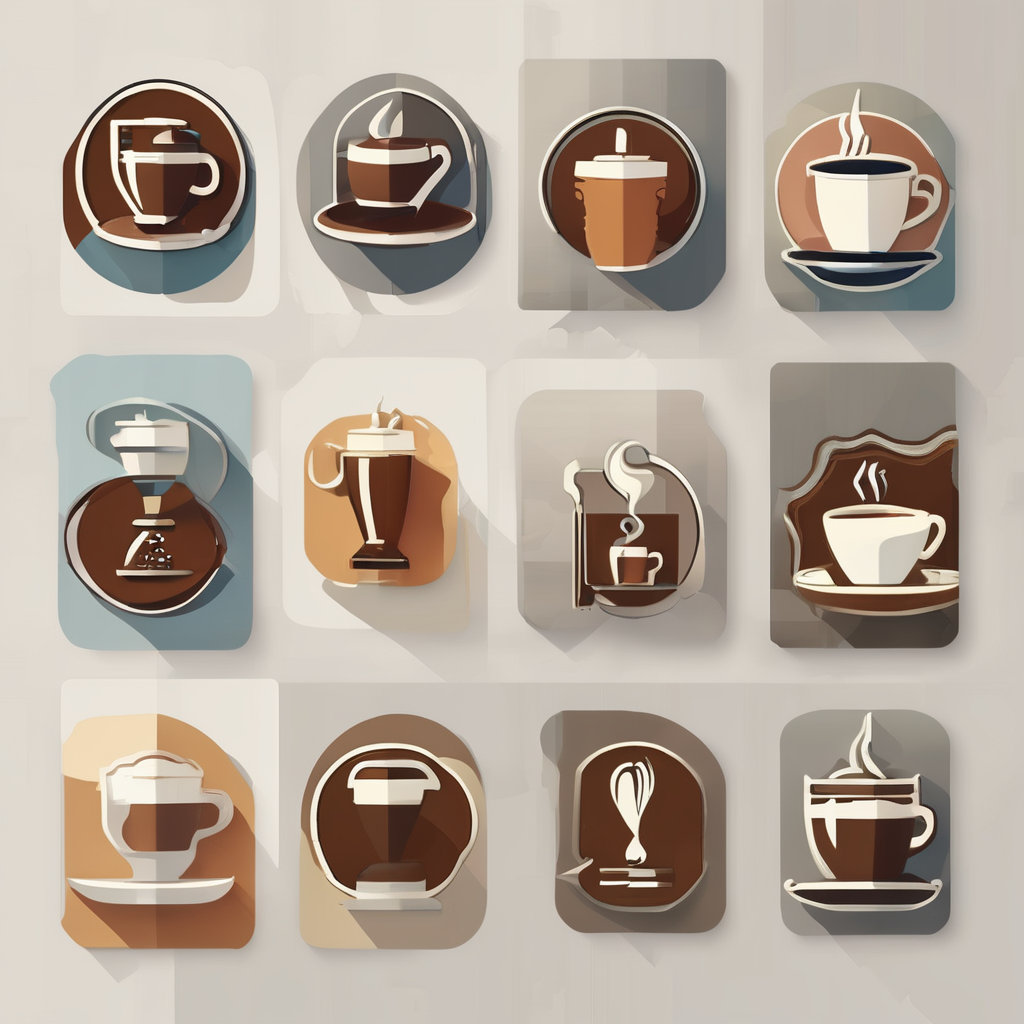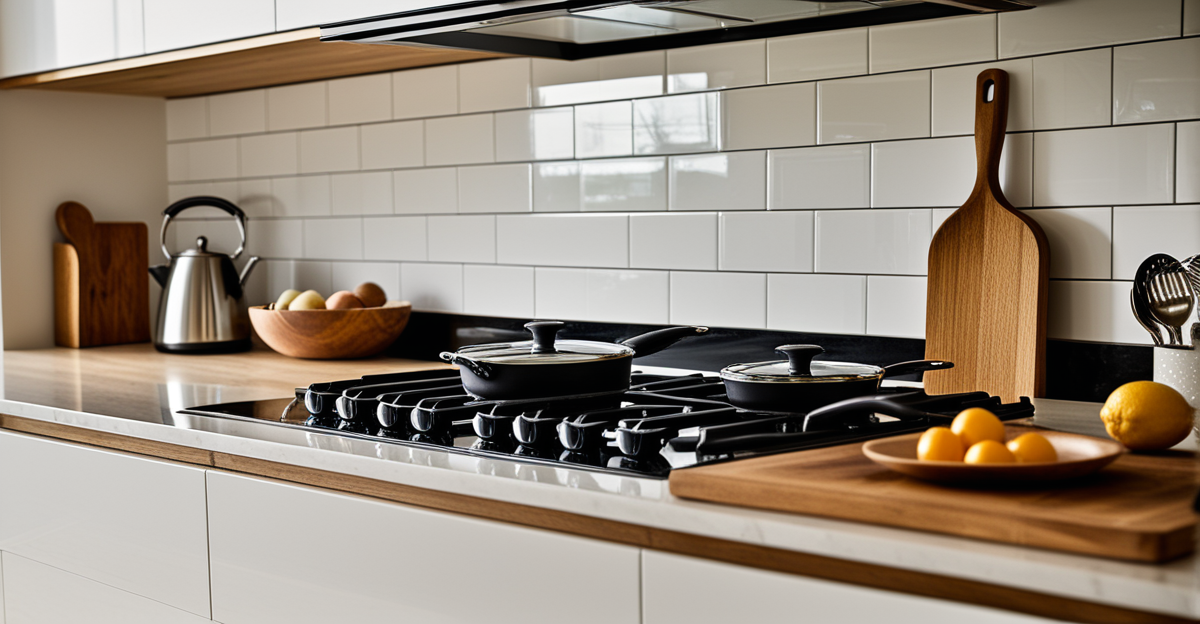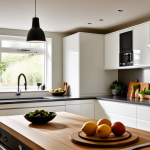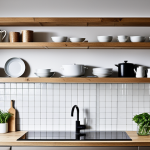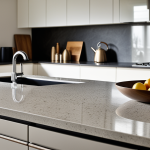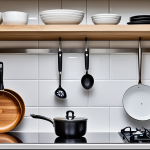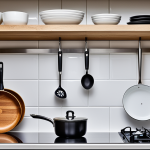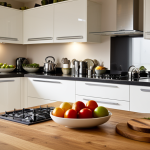The Importance of Traditional UK Kitchen Products in Modern Homes
Understanding the value of traditional UK kitchen products is essential when considering their role in today’s modern homes. These products embody core features such as durability, timelessness, and exceptional craftsmanship, all of which contribute to their enduring popularity. Homeowners and kitchen designers alike recognize the significance of incorporating these elements to maintain a sense of heritage while meeting current demands.
Durability is a defining characteristic of traditional kitchen products. Made from robust materials like cast iron, stoneware, or seasoned wood, these items offer longevity that modern alternatives often struggle to match. This timelessness not only appeals aesthetically but also ensures that kitchenware becomes an investment spanning years or even generations.
Also to read : What should you look for in high-quality UK kitchen utensils?
Craftsmanship is another critical aspect. Many traditional UK kitchen products reflect meticulous workmanship passed down through generations. This quality assurance gives confidence to users that these products will perform reliably in daily cooking and food preparation. Such heritage craftsmanship also adds character and warmth to the kitchen environment, enhancing its overall design relevance.
In modern home essentials, traditional kitchen products maintain an ongoing role by balancing function and style. They evoke familiarity and authenticity in a space often dominated by sleek, impersonal technology. The presence of classic tools and cookware complements contemporary kitchen elements, providing a bridge between past and present traditions that enriches the culinary experience.
Topic to read : What should you look for in high-quality UK kitchen utensils?
By embracing traditional UK kitchen products, homeowners benefit from both practical functionality and a deeper connection to cultural heritage, making these items indispensable in today’s kitchen design relevance.
Key Benefits and Distinctive Qualities
Traditional UK kitchen products stand out primarily due to their durability and exceptional quality. Crafted from long-lasting materials like cast iron and seasoned wood, these items resist wear and tear far better than many modern alternatives. This durability ensures they remain functional and attractive in the kitchen over many years, often becoming family heirlooms.
The heritage craftsmanship behind traditional kitchenware guarantees meticulous attention to detail and quality assurance. Hand-finished surfaces and robust construction methods passed down through generations add value beyond mere appearance. This craftsmanship not only enhances the visual appeal but also ensures reliability during everyday cooking—a crucial factor for home cooks and professional chefs alike.
In terms of practicality, traditional kitchen products excel in functional design. Their forms, proven through extensive use over time, facilitate efficient food preparation and entertaining. For example, heavy cast iron pans retain heat evenly, making them ideal for consistent cooking results. Similarly, wooden utensils offer gentle handling for delicate ingredients, preserving texture and flavor. These advantages of traditional kitchenware emphasize their continued relevance as modern home essentials, combining quality, longevity, and usability in a way that supports both the aesthetics and functionality of a contemporary kitchen.
Comparing Traditional and Modern Kitchen Products
Traditional vs modern kitchen products differ significantly in materials and design, impacting both functionality and aesthetic appeal. Traditional UK kitchen products often use robust, natural materials like cast iron, stoneware, and seasoned wood. These materials provide excellent heat retention, durability, and sensory appeal—qualities prized for their longevity and reliable performance in everyday cooking. Conversely, modern counterparts frequently incorporate stainless steel, silicone, and engineered plastics, which offer lightweight convenience and easy maintenance but may lack the tactile warmth and enduring quality of traditional items.
Material comparison reveals key performance differences. Cast iron, common in traditional cookware, ensures even heat distribution and superior heat retention, which are vital for consistent cooking results. Modern non-stick pans heat quickly and clean easily but may wear out faster. Similarly, wooden utensils from traditional sets are gentle on cookware surfaces and resist heat damage, while many modern utensils prioritize dishwasher safety, sometimes compromising texture and grip.
A unique blend of aesthetics occurs when classic and contemporary styles integrate. Traditional UK kitchen products provide a sense of nostalgia and authenticity through their timeless appearance. In contrast, sleek modern designs emphasize minimalism and streamlined forms. Combining these styles allows homeowners to enjoy a kitchen that honors heritage while embracing innovation, enhancing kitchen design relevance.
Cost and sustainability also differ between traditional and modern kitchen products. Initial costs for traditional items can be higher due to craftsmanship and quality materials, but their longevity often results in better long-term value. Modern products may have lower upfront prices but sometimes require more frequent replacement. From an environmental viewpoint, traditional materials like cast iron and wood are often more sustainable, being recyclable or biodegradable, while synthetic materials face challenges in eco-friendly disposal.
In summary, choosing between traditional versus modern kitchen products involves balancing material performance, durability, aesthetics, and sustainability. A thoughtful selection can optimize both practical use and visual harmony, elevating the overall kitchen experience.
Integrating Tradition into Contemporary Kitchen Spaces
Blending traditional UK kitchen products with modern elements creates kitchens that feel both welcoming and efficient. Homeowners looking to marry tradition and modernity often start by pairing classic materials—like cast iron pans or wooden utensils—with sleek, contemporary appliances. This approach maintains kitchen design relevance by preserving a sense of heritage while embracing today’s technology.
Achieving harmony involves thoughtful placement and color coordination. For example, using exposed wooden shelves to display stoneware or porcelain serving pieces adds warmth against minimalist cabinet designs. Incorporating vintage-style storage jars on modern countertops combines charm with daily usability. These choices highlight the functional design of traditional kitchenware without compromising a streamlined aesthetic.
Real-life examples show how careful curation can elevate a kitchen’s appeal. A cast iron skillet resting on an induction hob symbolizes how old meets new in practical cooking. Butcher’s blocks can serve as stylish, durable prep surfaces alongside stainless-steel appliances. Such integration celebrates the advantages of traditional kitchenware while ensuring homes remain modern home essentials.
In summary, blending tradition into contemporary spaces enhances kitchens with visual interest and practical benefits. By thoughtfully combining classic products and current design trends, homeowners enjoy spaces that respect history and support modern lifestyles seamlessly.
The Importance of Traditional UK Kitchen Products in Modern Homes
Traditional UK kitchen products remain indispensable in modern home essentials due to their durability, timelessness, and exceptional craftsmanship. These core features set them apart by ensuring that kitchen items are not only functional but also resonate deeply with both homeowners and designers seeking to maintain kitchen design relevance.
Durability is fundamental; traditional products crafted from materials like seasoned wood and cast iron withstand daily use far better than many contemporary alternatives, making them true investments. Their timelessness contributes to aesthetic appeal that transcends fleeting trends, allowing kitchens to retain warmth and character over years.
Craftsmanship elevates these products beyond mere tools. Meticulous production techniques, honed across generations, guarantee quality and reliability. This heritage is widely recognized by UK households who value authenticity, making traditional kitchen products central to both everyday cooking and broader design themes.
Moreover, the ongoing role of these items in modern homes reflects a conscious choice to integrate cultural heritage with present-day needs. By balancing tradition with practicality, they enhance kitchen design relevance, offering a sense of place and identity amid evolving kitchen trends.
